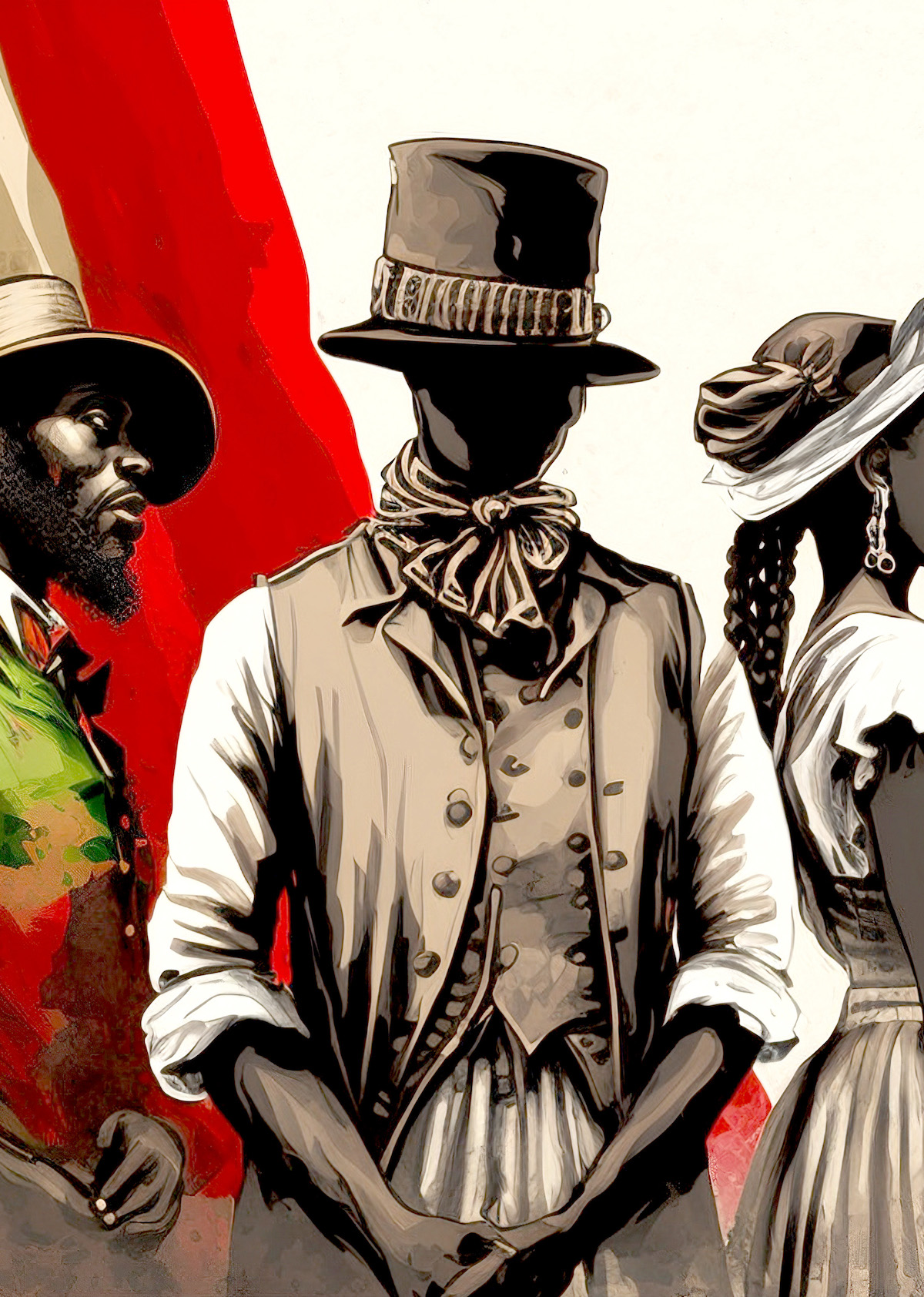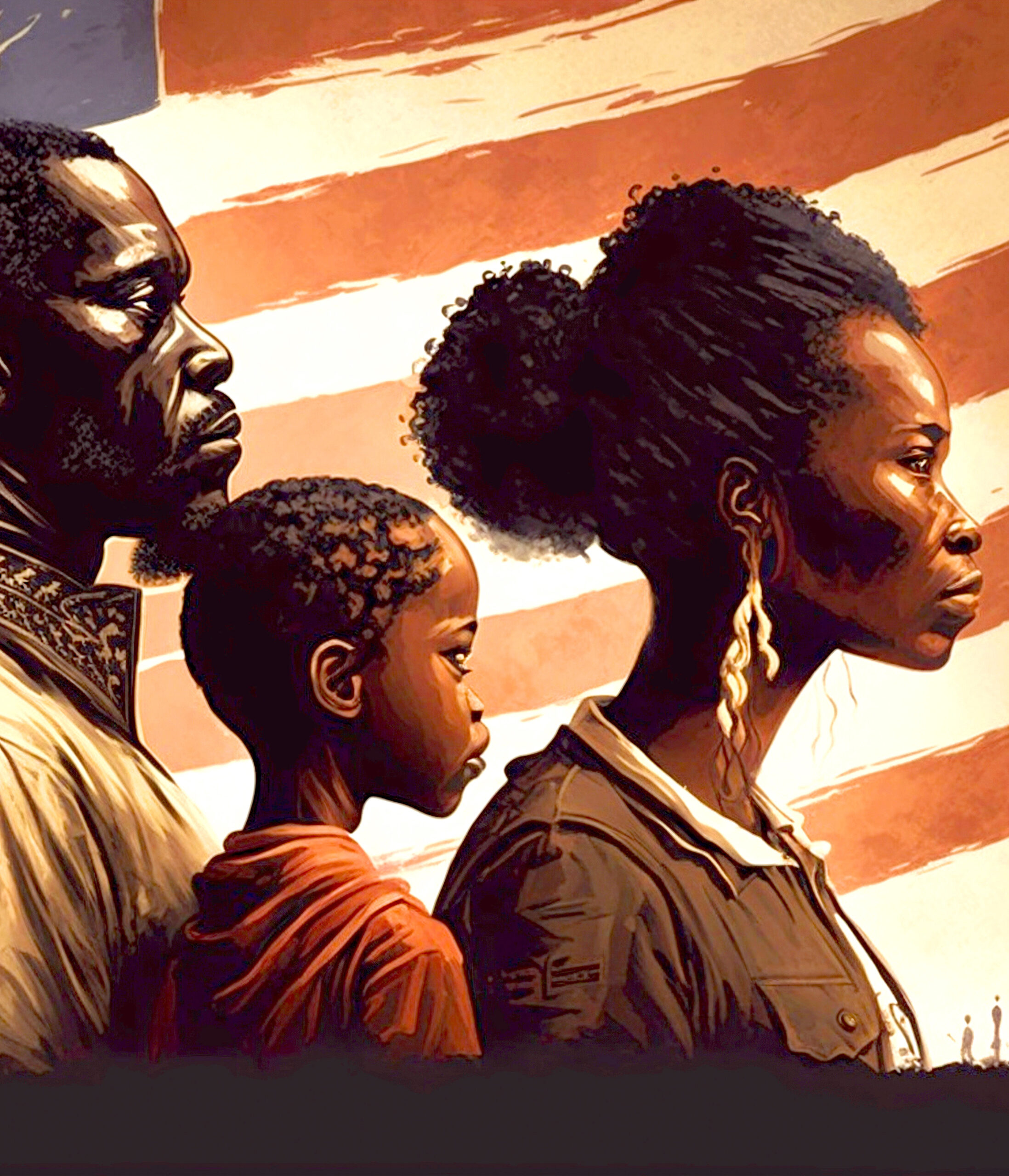
EDUCATION
OKLAHOMA — The Advanced Placement African American Studies course, first tested in a pilot program at McLain High School of Science and Technology in north Tulsa, will be launched in high schools nationwide in the upcoming 2024-25 school year.
John Neal
Featured Image. The Oklahoma Eagle
With leadership and contributions from Black authors, scholars, and teachers, the College Board developed this college-level Advanced Placement program to give U.S. high school students a solid enough grounding in African American history and culture to prepare them for deeper learning in the subject matter as they pursue higher education.
Several Oklahoma educators who have helped shape the curriculum for the course praised the project as a vital opportunity in secondary school education that every eligible student in Tulsa, statewide and nationwide, should take advantage of and enroll into the program. McLain High school teacher Darren Williams and University of Oklahoma Associate Professor Karlos K. Hill gave the course ringing endorsements in interviews with The Oklahoma Eagle. Williams, who has helped the College Board develop the course and teaches it at McLain, says that the curriculum should be bolstered in at least two key areas: music and religion.
African American history is world history; it’s American history, and it has been excluded, written out, and left out.
Darren Williams, McLain High school teacher
And yet, the course content faces continued opposition from conservative idealogues and some state educational institutions.
The College Board, responsible for most college admissions testing, unveiled the latest curriculum for the course in December 2023. High school students taking the African American history course and passing a test can receive college credit or bypass introductory college coursework. Over one million students test for Advanced Placement (AP) through the College Board annually, and the African American Studies pilot course has been wildly popular among students across the U.S.
Conservative politicians and right-of-center activists in Florida and other states have sought to derail or curtail the course’s curriculum. Some opponents have placed heavy political pressure on the College Board to constrain the “liberal” content. Others have enacted legislation in dozens of states to censor its concepts and outlaw its teaching.

Curriculum
The course consists of “essential events, experiences, and individuals crucial to a study of African-American history and culture,” according to the College Board. The College Board produced a 294-page “operational framework” and “represents more than three years of rigorous development by nearly 300 African American scholars, high school AP teachers, and experts within the AP program.” Readers can access the document here.
The Oklahoma Eagle has excerpted several key themes described by the Board. They are as follows:
Migration and the African American Diaspora
Migration is a critical theme in African American Studies. The concept of “diaspora” describes the movement and dispersal of a group from their place of origin to various new locations. This concept holds Africa as the point of origin for the shared ancestry of diverse people of African descent.
Intersections of Identity
AP African American Studies examines the interplay of distinct categories of identity (such as race, ethnicity, class, nationality, gender, region, religion, and ability) with each other and within society. [T]he course emphasizes how identity categories operate together to shape individuals’ experiences and perspectives.
Creativity, Expression, and the Arts
AP African American Studies emphasizes creativity, expression, and the arts as a lens to understand the experiences and contributions of African American communities in the past and present. Students are encouraged to examine the context and audience of African American forms of expression, particularly their global influence and how they have changed over time.
Resistance and Resilience
The themes of resistance and resilience spiral throughout the AP African American Studies course, [including] a range of methods African Americans have innovated to resist oppression and assert agency and authenticity – politically, economically, culturally, and artistically.
Tulsa Public Schools helped develop and refine the African American Studies course. By providing one of only 60 schools in the country to pilot the curriculum framework in the school year 2022-23. McLain High School was the only school to offer two separate classes taught by teachers Darren Williams and Shekinah Hall.
Williams and Hall lauded the program and its enthusiastic reception among students.
“African American history is world history; it’s American history, and it has been excluded, written out, and left out,” Williams told The Oklahoma Eagle. “For this (course) to come is a long time coming, and it’s about time it happened.” He added that the course is “a step towards educational justice.”
In an interview with the news station CNN, Shekinah Hall added, “We have to know what’s happening so we can do something better in the future.”
Controversy
Lies and distortions of African American history and culture have well-known and well-documented antecedents. The modern attempt to derail its truthful articulation is evident in the opposition to the AP African Americans Studies project. Forces reacting to the initiative and other efforts to restrict topics such as race introduced no less than “137 education gag order bills in thirty-six states,” as tabulated by Pen America in August 2022.
However, the AP African American Studies course was well on the way to a successful launch, having been tested in 60 schools nationwide in the 2022-23 school year. The system is currently offered in 700 school locations in 40 states. In Oklahoma, both McLain and Norman high schools offer the course.
The purpose of these pilot programs is to continue to develop the themes, refine the curriculum, and test the worthiness of concepts and author sources of information.
But behind the scenes, the state of Florida, in particular, was lobbying to restrict the use of certain concepts, scholarship, and authors. Having enacted restrictive educational legislation limiting Florida public schools’ instruction, the state used those restrictions to pressure the College Board. Florida officials told the Board some of the course’s materials “appear to include content that may not be permissible” and “could not be added…without revisions.”
Although the College Board denied state influence, it issued what many critics deemed a watered-down version of the “course framework” in February 2023. Critics of the course in Florida claimed victory, saying they had successfully “removed 19 topics” from the course framework. Black and white history scholars nationwide cried foul. The College Board revised the framework and reissued it in December.
Updated course framework
The latest operational framework, released in December, made 70 changes from the February version, restoring many of the topics removed with “updates, new topics, and authors.”
Williams, the McLain teacher, said that the part of the course about religion should be broadened. “Religion, particularly until the Civil Rights Movement, was a mainstay and anchor of the African American community,” he explained. “That includes Christianity and Islam. It deserves a bigger place in the course than it currently plays.”
Williams feels that music should also be more significant in the course. “Music was -and is – the lifeblood of African American culture,” he said. “Historically, there has been almost nothing that happened in the culture without music.”
OU Associate Professor Hill, who again contributed to the course’s development, is an author, educator, and chair of OU’s Clara Luper Department of African and African American Studies. In an interview with The Oklahoma Eagle, Hill said the course curriculum covers the critical aspects of African and African American history. While some critics note omissions in the curriculum, such as LGBT identity in Black culture history, Hill said, “No course includes everything. Creating a curriculum is a work in progress. That leaves the opportunity to revise or add subject matter later.”
Hill noted that given the political climate in Oklahoma, it is unlikely that every high school in the state will initially embrace the course, but added, “All high schools in Oklahoma should offer this class.”
In an attempt to jump over the restrictions Oklahoma officials have placed on the teaching of race, north Tulsa community advocate Kristi Williams is offering Tulsa students and adults a series of classes focusing on international, national, and local aspects of African American history. Williams is chair of the Greater Tulsa Area African American Affairs Commission and a descendant of Tulsa Race Massacre victims. The course, called “Black History Saturdays” was launched in 2023 and will start its second year in February. It will be offered on the first Saturday of every month for nine months. Those interested in the class can learn more here.
An Oklahoma state law takes effect next school year, requiring each high school to offer a minimum of four advanced placement courses. The Oklahoma State Department of Education has posted this course among the Advanced Placement Course options. The College Board reports, “Students across the country are eager to take this course,” with 13,000 taking it in the second pilot year.
Some Oklahoma high schools will likely follow Tulsa’s example and offer this rich tapestry of African American history and culture to their curriculum.
TRUSTING NEWS SURVEY
Trusting News campaign members are encouraged to complete the following survey.










